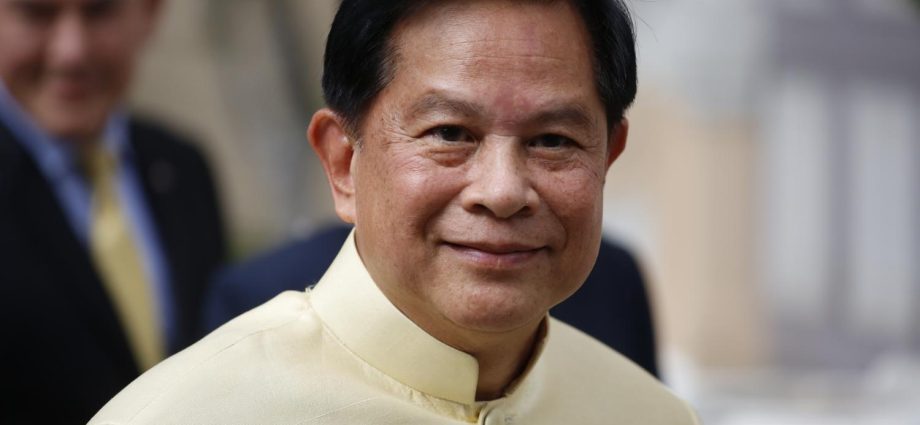Pirapan plans to push for a ‘fairer’ system
Deputy Prime Minister and Energy Minister Pirapan Salirathavibhaga has vowed to push for a major restructuring of the country’s energy pricing system, starting with the freeing up of refined oil import restrictions.
“I will overhaul the entire system to help ease the current burden of higher energy prices, which in a way will literally free up people’s lives from the seemingly uncontrollable energy prices,” Mr Pirapan wrote in a Facebook post on Monday.
“We will be rebuilding a new, fairer energy system for the country, which will ensure energy security and sustainability,” he said.
The aims of the changes, he said, will result in the cost of fuel and related types of energy dropping to more reasonable levels.
Mr Pirapan, however, said he didn’t expect this to be an easy task while adding he was ready to deal with fierce resistance from oil refineries and other related businesses.
He said such businesses have been gaining handsome profits from high energy prices for a long time.
“Those who have long been benefiting substantially from high energy prices and will now have to lose their usual benefits have been sponsoring certain politicians for protection,” he said.
“But I’m not afraid of them since I intend to overhaul the entire system.”
Certain tough regulations still bar the import of refined oil for sale in the country, he said, adding that this needs to be addressed.
Freeing oil imports is a key mechanism planned to be used to better control oil prices in the country, which was one of the energy policies to be declared in parliament by the Pheu Thai Party-led coalition, said Mr Pirapan upon his swearing-in as the energy minister last year.
The work has begun already, but the media haven’t covered it as yet, he said.
Mr Pirapan said he had already pushed successfully for a transfer of natural gas collected and processed in the Gulf of Thailand to improve profits for the gas sector supplying electricity-generating plants and other energy producers.
He said a lot is happening behind the scenes as the new government has tried to lower energy prices.
The cabinet, on Dec 19 last year, gave the green light to a Ministry of Energy proposal to keep the diesel price under 30 baht per litre and cap the power tariff at 3.99 baht per kilowatt-hour (unit) for households that use no more than 300 units per month.
As a New Year’s gift, the government agreed to maintain the diesel price at under 30 baht per litre and liquefied petroleum gas (LPG) and cooking gas at 423 baht per 15kg for three months.
Regarding electricity, the government approved the proposal to cap the power tariff at 3.99 baht per unit for those who use no more than 300 units from January to April, which is believed to benefit about 17 million households.
Thanks to these measures, the electricity price during January-April will not exceed 4.20 baht per unit.
The “vulnerable group”, which uses no more than 300 units per month, will pay the current rate of 3.99 baht per unit.
As for diesel and petrol, the retail price of diesel will be kept below 30 baht per litre for another three months, while the reduction in the price of petrol will continue until Jan 31.
Mr Pirapan said the ministry couldn’t succeed in its attempt to bring down the energy prices without full support from Prime Minister Srettha Thavisin in his capacity as chairman of the National Energy Policy Committee (NEPC).
The high energy prices are key factors in high living costs, which are a main problem this government has been trying to curb while speeding up stimulating the economy through various policies, he said.
Mr Pirapan said that in the months to come, more measures are expected to be rolled out to bring energy prices further down for more specific groups.
Among those groups, he said, are farmers who will possibly be supplied with low-priced oil, which currently is being offered to fishermen.

Pirapan: Touting bold reforms

